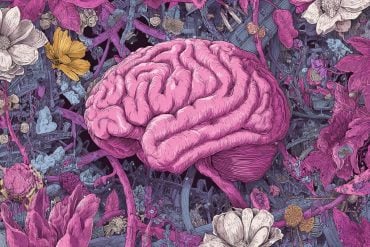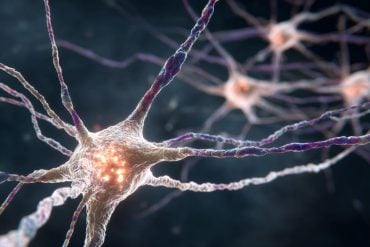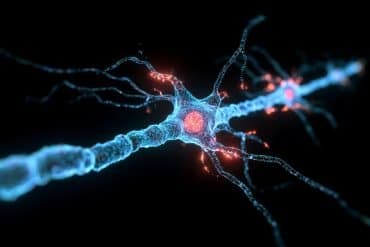Summary: The neuroscience and psychology of loneliness have provided fascinating insights into this pervasive issue, revealing its profound effects on our brain and mental health.
Research has shown that loneliness is related to unique brain processing patterns and can contribute to various mental health issues, including depression and anxiety. Despite the rise of digital communication, we are experiencing a “loneliness epidemic,” highlighting the importance of understanding this complex issue.
Various interventions, including mindfulness training, have shown promise in combatting the negative impacts of loneliness.
Key Facts:
- Loneliness is associated with unique brain processing patterns and can alter individual cognitive and perceptual experiences.
- The subjective feeling of loneliness can contribute to various mental health issues, including depression and anxiety, and even physical health problems.
- Research suggests that mindfulness training and interventions targeting social skills and cognition can effectively combat loneliness and its negative impacts.
Source: Neuroscience News
Loneliness, a subjective feeling of social isolation, is a pervasive issue that has been further amplified by the global pandemic.
It is not simply a transient state of mind; loneliness has far-reaching implications for our physical and mental health, with strong ties to depression, anxiety, and cognitive decline.
With recent advancements in neuroscience and psychology, we are beginning to understand the complex mechanisms that underpin loneliness and its effects on the brain.
Understanding Loneliness
Loneliness is not synonymous with being alone. It’s a subjective experience related to the perceived quality of social interactions rather than their quantity. It’s possible to feel lonely in a crowd or perfectly content in solitude.
This differentiation is essential because the psychological experience of loneliness can trigger various biological responses that impact brain health.
Neurobiology of Loneliness
Recent neuroscience research has shed light on the neurobiological mechanisms associated with loneliness.
The feeling of loneliness is suggested to be linked to brain regions involved in social cognition and emotion regulation, such as the prefrontal cortex and amygdala.
Moreover, a study using functional magnetic resonance imaging (fMRI) discovered that individuals experiencing loneliness had more unique and idiosyncratic brain processing patterns compared to those who were not lonely.
These findings indicate that loneliness can alter individual brain processing, leading to distinct cognitive and perceptual experiences.
Loneliness and Mental Health
From a psychological standpoint, loneliness is intrinsically linked with mental health. Several studies have shown that loneliness can contribute to various mental health issues, including depression and anxiety.
Moreover, chronic loneliness can lead to a persistent feeling of threat and hypervigilance for social threat, contributing to an array of negative health outcomes, including sleep disturbances, decreased immune function, and increased morbidity.
Loneliness in the Age of Connectivity
Despite living in a hyper-connected era, the paradox of our time is that loneliness is more prevalent than ever. In the face of digital connections, we are grappling with a “loneliness epidemic.”
This emphasizes that digital communication cannot replace the psychological benefits obtained from in-person interactions, highlighting the importance of understanding the complex neural underpinnings and psychological facets of loneliness.
Combatting Loneliness
Research has suggested various ways to combat loneliness and its negative impact. These range from interventions aimed at improving social skills, enhancing social support, increasing opportunities for social contact, and addressing maladaptive social cognition.
It has been shown that even a single session of mindfulness meditation can help reduce feelings of loneliness, demonstrating the importance of psychological interventions in addressing this issue.
Conclusion
In conclusion, the neuroscience and psychology of loneliness are complex and multifaceted fields that have seen significant advancements in recent years.
Continued research into the neurobiological and psychological underpinnings of loneliness will be essential to devise effective interventions and to provide aid to those who experience chronic loneliness.
As we grapple with a changing social landscape, the importance of understanding and addressing loneliness cannot be overstated.
About this loneliness, neuroscience, and psychology research news
Author: Neuroscience News Communications
Source: Neuroscience News
Contact: Neuroscience News Communications – Neuroscience News
Image: The image is credited to Neuroscience News
Citations:
“Loneliness and social isolation as risk factors for coronary heart disease and stroke: systematic review and meta-analysis of longitudinal observational studies” by Nicole K Valtorta et al. Heart
“Loneliness matters: a theoretical and empirical review of consequences and mechanisms. Annals of Behavioral Medicine” by Louise C. Hawkley et al. Annals of Behavioral Medicine
“The growing problem of loneliness” by Cacioppo & Cacioppo. The Lancet
“Brain structure links loneliness to social perception” by Ryota Kanai et al. Current Biology
“The association between social relationships and depression: a systematic review” by Ziggi Ivan Santini et al. Journal of Affective Disorders
“The neuroendocrinology of social isolation” by John Cacioppo et al. Annual Review of Psychology
“Social media use and perceived social isolation among young adults in the US” by Brian A. Primack et al. American Journal of Preventative Medicine
“A meta-analysis of interventions to reduce loneliness” by Christopher M. Masi et al. Personality and Social Psychology Review
“Mindfulness training reduces loneliness and increases social contact in a randomized controlled trial” by Emily K. Lindsay et al. PNAS








